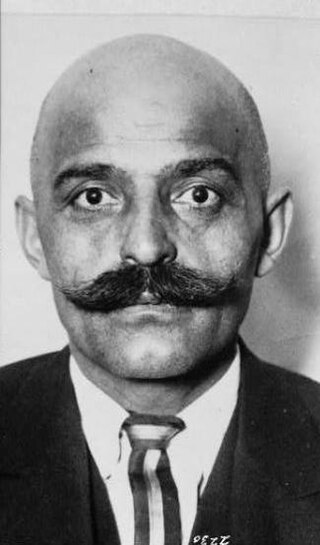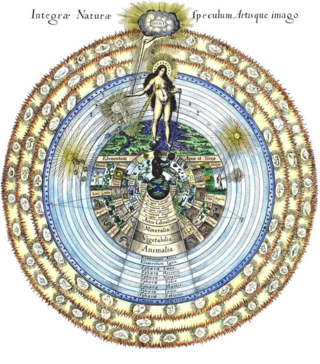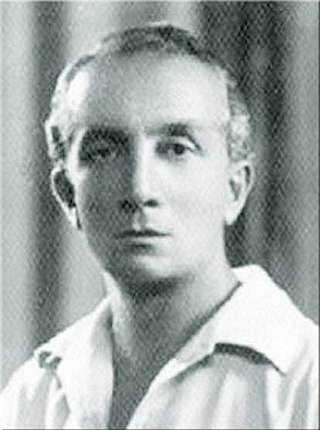Historical background
In 1971 a small number of people began to meet with Raymond Armin (1924 - 2002) to research the core issues of life, the universe and everything. The group called their activities "The Way" and later "The Emin".
By 1974 the group had 80 members; Raymond Armin was employed full-time by the society and a centre was rented for meetings at Gospel Oak in London. By 1976 a larger place was found at Putney. By 1977 there were 700 members in the UK.
Origins of the name
Emin is an Arabic word which means the faithful one.
In 1981 a request for verification of this from the London Central Mosque produced the response that Emin is a Europeanised variation of the Arabic : Ameen. The meanings attributed to the various forms of the word are: "trust", "faith", "worthy to be trusted", "truly", "reliable". It is also a form of the Hebrew word Amen and appears also in Christian usage with the meaning: "I concur" (used at the end of a prayer to signify that the words in the prayer are true and reliable, a statement of faith).
Origins of the philosophy
The Emin philosophy is the result of the work of Raymond Armin (AKA Leo), born in Camden Town, London, in 1924. As a child, Leo came to develop a deep conviction that everything that existed did so according to a core set of laws or principles; later he would call these the Natural Laws.
During the 1940s and 50's Leo married and had a family but maintained his on-going enquiry into the meaning and purpose of life. He spent much time researching in the British Museum and the British Library. In 1971 a number of young people met Leo and started meeting with him on a regular basis. They found him to have the ability to unlock perception into a huge range of subjects using a toolkit of techniques later referred to as groundwork.
Leo shared these techniques with the students and together they worked into new subjects as the topics arose during their regular meetings. To aid students in their own researches, Leo wrote papers explaining important concepts and these became known as the Emin archives. Using the natural laws, Leo was able to understand and explain even the most complicated of phenomena in a simple to grasp form - the basic premise being that natural laws are at the core of the appearance of everything.
As Leo continued to work with students, so the Emin philosophy developed and grew. The concept of universal templates developed out from the Emin philosophy and describes personal development according to 21 levels or stations.
Philosophical content
The Emin represents an experimental spiritual philosophy. The first premise is the fact of a human life and all that it may do. The second premise is that human life's relationship with creation. Each individual is responsible for their own development and destiny. The Emin web site (see below) gives a good introduction to the philosophy.
Propositions
The philosophy contains work on many areas of life and contains many propositions that include:
- That the universe is governed by laws and is constantly evolving
- That the potential of a human lies within and can be brought out by development
- The human is not alone or arbitrary; rather, they are part of Creation and designed to integrate with that Creation.
- The very fact of being alive and conscious offers the possibility of intellectual and spiritual development, which is for any individual to take up, should they so wish.
- Each life is ultimately responsible for itself.
- Human knowledge derives in the first instance from the natural laws, and has aggregated throughout history. The continuing aggregation provides the basis for further development of the human faculty and possibility.
Sentiment
The idea of sentiment runs through much, if not all, of the Emin philosophy. The premise being that a person's sentiment towards anything, including themselves, will largely determine what type of relationship, dealing or interaction they might have with that thing. As an example, if a person has a good sentiment towards the planet then they will respect her and appreciate her processes and will want to help in issues that might affect her well being. And, a person's sentiment towards their partner will likewise determine the nature of that relationship. This can be extended and applied to any matter at all and is viewed as being fundamental to a person's spiritual journey especially where integration is concerned.
The archives
The above-mentioned subjects comprise what is often referred to as the Emin archives. Other components include writings on psychology and personal development, theology, history, meditation and various practical personal development exercises and so on…
Comparison to other philosophies
The philosophy was developed from original research - although certain elements of the philosophy have similarity to those found in Buddhism, Taoism, Shinto, the works of Gurdjieff and Rudolf Steiner, and other eastern and western philosophy and theology.
A number of the early archives (from the 1970s) borrow and develop concepts from Gurdjieff's work, and these include: The Ray of Creation , the Five Centres , Essence & Personality , Knowledge, Understanding & Being, Body Types, The Three Brains, States of Consciousness, Levels of existence, Cosmology and Laws.

George Ivanovich Gurdjieff was a Greek–Armenian philosopher, mystic, spiritual teacher, composer, and movements teacher. Gurdjieff taught that people are not conscious of themselves and thus live their lives in a state of hypnotic "waking sleep", but that it is possible to awaken to a higher state of consciousness and serve our purpose as human beings. The practice of his teaching has become known as "The Work" and is additional to the ways of the Fakirs (Sufis), Monks and Yogis, so that his student P. D. Ouspensky referred to it as the "Fourth Way".
Spiritual is the adjective for the noun "spirit".
John Godolphin Bennett was a British academic and author. He is best known for his books on psychology and spirituality, particularly on the teachings of G. I. Gurdjieff. Bennett met Gurdjieff in Istanbul in October 1920 and later helped to co-ordinate the work of Gurdjieff in England after the guru had moved to Paris. He also was active in starting the British section of the Subud movement, and co-founded its British headquarters.

The Fourth Way is an approach to self-development developed by George Gurdjieff over years of travel in the East. Students often refer to the Fourth Way as "The Work", "Work on oneself", or "The System". The exact origins of some of Gurdjieff's teachings are unknown, but various sources have been suggested.

A subtle body is a "quasi material" aspect of the human body, being neither solely physical nor solely spiritual, according to various esoteric, occult, and mystical teachings. This contrasts with the mind–body dualism that has dominated Western thought. The subtle body is important in the Taoism of China and Dharmic religions such as Hinduism, Buddhism, and Jainism, mainly in the branches which focus on tantra and yoga, where it is known as the Sūkṣma-śarīra. However, while mostly associated with Asian cultures, non-dualistic approaches to the mind and body are found in many parts of the world.
Spiritual evolution, also called higher evolution, is the idea that the mind or spirit, in analogy to biological evolution, collectively evolves from a simple form dominated by nature, to a higher form dominated by the spiritual or divine. It is differentiated from the "lower" or biological evolution.

Prabhat Ranjan Sarkar, also known by his spiritual name Shrii Shrii Ánandamúrti, and known as Bábá ("Father") to his disciples, was a spiritual guru, philosopher, social reformer, linguist, author and composer of 5,018 songs mostly in the Bengali language. He founded Ananda Marga in 1955 as a spiritual and social organisation that continues to offer instruction in meditation and yoga and runs numerous social service and disaster relief projects throughout the world.

Ānanda Mārga, or officially Ānanda Mārga Pracāraka Saṃgha, is a world-wide socio-spiritual organisation founded in Jamalpur, Munger, Bihar, India, in 1955 by Prabhat Ranjan Sarkar, known as Shrii Shrii Anandamurti. It is also the name of the philosophy and life-style propounded by Sarkar, described as a practical means of personal development and the transformation of society. It is established in more than 180 countries across the world. Its motto is Ātmamokśārthaṃ jagaddhitāya ca.

The concept of the anima mundi (Latin), world soul, or soul of the world posits an intrinsic connection between all living beings, suggesting that the world is animated by a soul much like the human body. Rooted in ancient Greek and Roman philosophy, the idea holds that the world soul infuses the cosmos with life and intelligence. This notion has been influential across various systems of thought, including Stoicism, Gnosticism, Neoplatonism, and Hermeticism, shaping metaphysical and cosmological frameworks throughout history.
The term involution has various meanings. In some instances it refers to a process prior to evolution which gives rise to the cosmos, in others it is an aspect of evolution, and in still others it is a process that follows the completion of evolution in the human form.
True Will is a foundational concept in Thelema, the philosophical and magical framework established by Aleister Crowley early in the 20th century. It represents the intrinsic and divine purpose unique to each individual, transcending mere personal desires and societal expectations. At the core of Crowley's teachings is "Do what thou wilt shall be the whole of the Law", a central dictum of his received work, The Book of the Law. This principle asserts not a license for unchecked indulgence, but rather a mandate for individuals to align their actions with their truest spiritual calling. By adhering to their True Will, practitioners of Thelema seek to fulfill their spiritual destiny by harmonising with the cosmic order.
The Emin or The Emin Society is a spiritual movement based on the work of Raymond Armin, known to members as "Leo". Originally, The Emin was named The Eminent Way or The Way. The movement arose in the 1970s. The Template Network is a movement which offers activities inspired by the Emin philosophy. The Emin has been called a cult in books such as Spying in Guru Land: Inside Britain's Cults, by William Shaw.

Binah is the third sephira on the kabbalistic Tree of Life. It sits on the level below Keter, across from Chokmah and directly above Gevurah. It is usually given four paths: from Keter, Chokmah, to Gevurah and Tiphereth.
A spiritual practice or spiritual discipline is the regular or full-time performance of actions and activities undertaken for the purpose of inducing spiritual experiences and cultivating spiritual development. A common metaphor used in the spiritual traditions of the world's great religions is that of walking a path. Therefore, a spiritual practice moves a person along a path towards a goal. The goal is variously referred to as salvation, liberation or union. A person who walks such a path is sometimes referred to as a wayfarer or a pilgrim.
In Thelema, the Abyss represents a metaphysical concept that signifies the great chasm or void separating the manifest world from its divine source. Aleister Crowley, the founder of Thelema, extensively explored and integrated this concept into his esoteric teachings, imbuing it with deep spiritual significance.
This is a glossary of spirituality-related terms. Spirituality is closely linked to religion.
Rudolf Steiner developed exercises aimed at cultivating new cognitive faculties he believed would be appropriate to contemporary individual and cultural development. According to Steiner's view of history, in earlier periods people were capable of direct spiritual perceptions, or clairvoyance, but not yet of rational thought; more recently, rationality has been developed at the cost of spiritual perception, leading to the alienation characteristic of modernity. Steiner proposed that humanity now has the task of synthesizing the rational and contemplative/spiritual components of cognition, whereby spiritual perception would be awakened through intensifying thinking. He considered this relevant not only to personal development, but as a foundation for advanced scientific research.

Massimo Scaligero was an Italian spiritual teacher and member of the UR Group, which gathered occultists and mystics. A mentee of Julius Evola, Scaligero espoused fierce antisemitic views which were combined with esotericism and anthroposophy into a system of "integral racism" with the aim to bring Germany and Italy closer together in the same way it would the spiritual and the biological.

The Study Society is registered with the Charity Commission as Registered Charity Number 1155498. Its stated objects are for the public benefit:
- to advance the education of the public in religion, science, philosophy and the arts.
- the promotion of moral and spiritual welfare.

Lataif-e-sitta are special organs of perception in Sufi spiritual psychology, subtle human capacities for experience or action. Depending on context, the lataif are also understood to be the qualities of consciousness corresponding to those experiences or actions.








